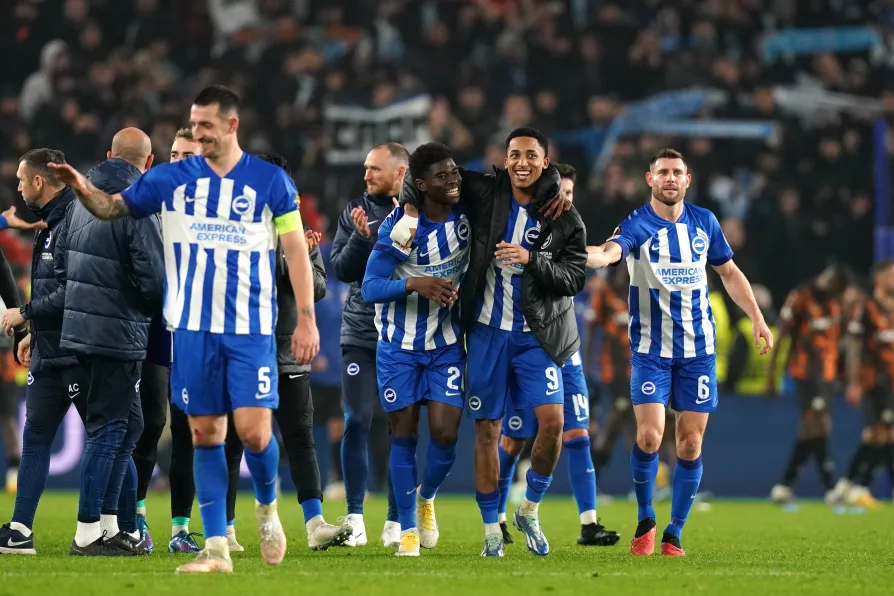Brazilian champions prevail in hard-fought Women’s Champions Cup semi-final

 Brighton and Hove Albion's Joao Pedro (centre) celebrates after the Uefa Europa League group B match, Brighton, December 14, 2023
Brighton and Hove Albion's Joao Pedro (centre) celebrates after the Uefa Europa League group B match, Brighton, December 14, 2023
THOSE who recall the saviour that was Robbie Reinelt had further reason to celebrate Brighton & Hove Albion’s astonishing rise still further this week.
With Christmas on the horizon, a bitterly cold evening on the south coast proffered its own presents to joyous Seagulls supporters when 22-year-old Brazilian Joao Pedro grabbed an 88th minute winner against iconic French powerhouse Olympique de Marseille.
The goal – which saw Pedro joyously engulfed by ecstatic fans during wild celebrations – was enough to ensure Roberto De Zerbi’s praiseworthy side sealed top spot in Europa League Group B. In their first ever season competing in continental competition, Brighton qualified for the knock-out stages of this storied tournament.

Joao Pedro’s emotional goals against Fluminense captured the magic of an international club competition. But even as fans bring colour and passion, the Club World Cup’s deeper issues loom large, writes JAMES NALTON

In the shadow of Heathrow and glow of Thorpe Park, a band of Arsenal loyalists have built something lasting — a grassroots club with old-school values, writes LAYTH YOUSIF












